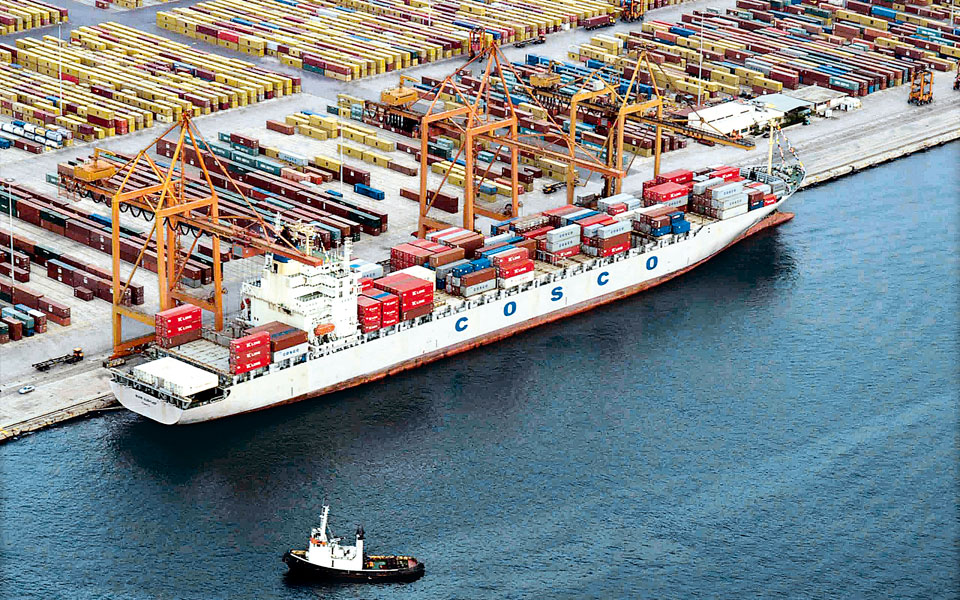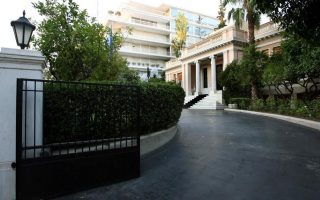Investor screening carries implications

The State of the Union address made by European Commission President Jean-Claude Juncker last Wednesday contained much that is relevant to Europe, and Greece’s, future but also something pertinent to its present, which will have to be watched closely in Athens.
Among the many proposals put forward by Juncker in an unusually wide-ranging speech, the head of the EU executive called for “investment screening.”
“If a foreign state-owned company wants to purchase a European harbor, part of our energy infrastructure or a defense technology firm, this should only happen in transparency, with scrutiny and debate,” he said. “It is a political responsibility to know what is going on in our own backyard so that we can protect our collective security if needed.”
Given that Greece has sold both its major ports, Piraeus and Thessaloniki, as well as part of its electricity network to foreign firms and is looking for an investor in the Hellenic Vehicle Industry (ELVO), Juncker’s points resonate strongly here.
His proposal came just a few days after French President Emmanuel Macron argued in Athens that the eurozone had been wrong not to pay more attention to which investors Greece had sold its assets in recent years. “We should not push Greece to choose non-European investments,” he said.
The most obvious concern for the European Union is the burgeoning presence of China. Its growing role in Greece and other parts of Southeastern Europe was highlighted in an independent report published last week by the European Bank of Reconstruction and Development (EBRD). The author, economic analyst Jens Bastian, examines the evolving “Balkan Silk Road,” which has seen Chinese interest and investment in Greece, Serbia, the Former Yugoslav Republic of Macedonia and Bosnia-Herzegovina increase in recent years.
As part of its “One Belt, One Road” initiative to expand China’s trade links around the world, Beijing has purchased infrastructure, set up bank branches and provided loans in all of these countries. In Greece, China’s most obvious presence, via shipping giant Cosco, is at the port of Piraeus. Other Chinese investments include a 24 percent stake in the Independent Power Transmission Operator (ADMIE) and an agreement to provide loans for Public Power Corporation infrastructure projects.
During his recent appearance at the Thessaloniki International Fair, Prime Minister Alexis Tsipras dismissed any concerns about Chinese investment in Greece. He said he admires Beijing’s approach and that it has a clear strategy regarding what it wants to achieve.
At the beginning of June, German Chancellor Angela Merkel spoke about China becoming “a more important and strategic partner” for her country. Nevertheless, last summer her government was reportedly uncomfortable about a 4.5-billion-euro takeover of German industrial robotics firm Kuka by China’s Midea. Although it did not stand in the way of the deal, the sale sparked some soul-searching in Berlin, according to Plamen Tonchev, head of the Asia Unit at the Institute of International Economic Relations (IIER).
“The key argument of the German government was that they were not happy with the Chinese taking over Kuka and they tried to stop it but failed because they are part of a free market,” he said during the presentation of Bastian’s report in Athens last week.
The rising apprehension about Chinese investments is linked to several issues, which include fears that China’s dominance in key industries could lead to protectionist practices in the future, the dominant role of the Chinese state in investments, a lack of transparency, different values and concern that sensitive infrastructure or technology could end up in non-EU hands. There is also a growing feeling that EU investors encounter obstacles in other countries, such as China, that do not exist for those seeking to invest in Europe.
As a result, the EU is now trying to find a way to avoid acting like what Juncker termed “naive free traders.” Last week’s proposal about investment screening was a step in this direction.
“We don’t know yet what exactly Juncker will propose, but it is clear that we have an issue with reciprocity: While the EU is extremely open for external investors, the same cannot be said for other states,” MEP Ska Keller, who is co-chair of the Greens/European Free Alliance in the European Parliament, told Kathimerini English Edition. “And we certainly have to ask ourselves if there are not some parts of our infrastructure that we shouldn’t sell to third parties.”
The proposal set out by Juncker foresees a European framework being created but for the screening process to be carried out by the member-states. Under this framework, EU members would screen investments on several grounds, including security and reciprocity.
“In light of the sheer amount and surge in Chinese investment… there is a growing demand among member-states for something to be done,” said Bastian, who pointed out that some member-states already have their own investment screening procedures. “There is a heated debate among diplomats in Brussels about what the role of the Commission will be and what will be the sovereign decision of individual countries.”
Apart from working out the details of how such a scheme would work and how the roles would be divided, the EU also has to answer another key question going forward. While some may have worries about China or other state-led investors gaining a foothold in the EU, for many member-states Beijing has proved a vital source of investment when financing from others have dried up. This is especially true for Greece, where Beijing has been involved in important and successful projects.
“Unlike other potentially interested parties, China has the financial capacity, the risk appetite and a long-term investment strategy in Greece,” writes Bastian in his report. “It has equally established a credible track record vis-a-vis the Greek political authorities and the business community in Athens. It is now in a first-mover position, submitting binding offers for projects which stand a high chance of being accepted.”
If the EU is to turn down such investments, Europeans will have to fill the gap. During his visit to Athens, Macron said that if Europeans are not able to take the place of non-EU investors this would imply a “lack of faith in Europe.”
Keller believes it is realistic to expect European investors to step in and fill the gap if less capital flows into the EU from other parts of the world. “I think that is possible,” she said. “We do need a European investment and industrial strategy in any case. Juncker has announced that he will present such a strategy and I’m curious to see the details.”





